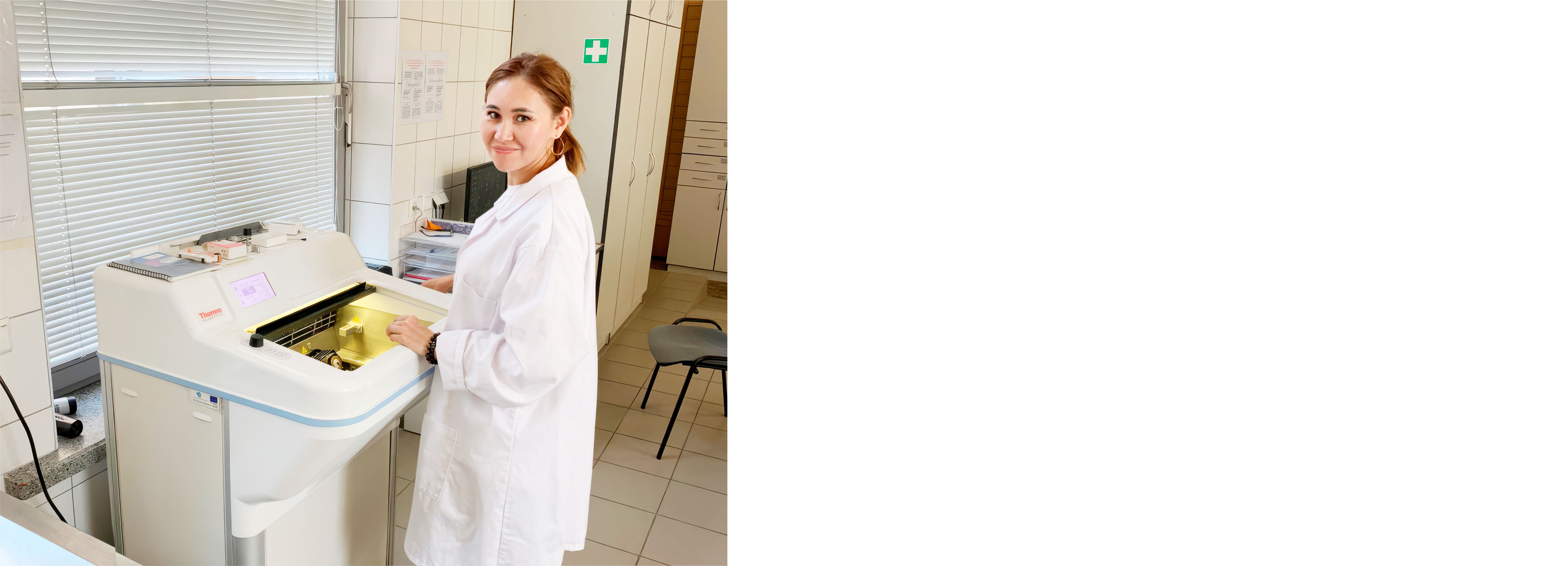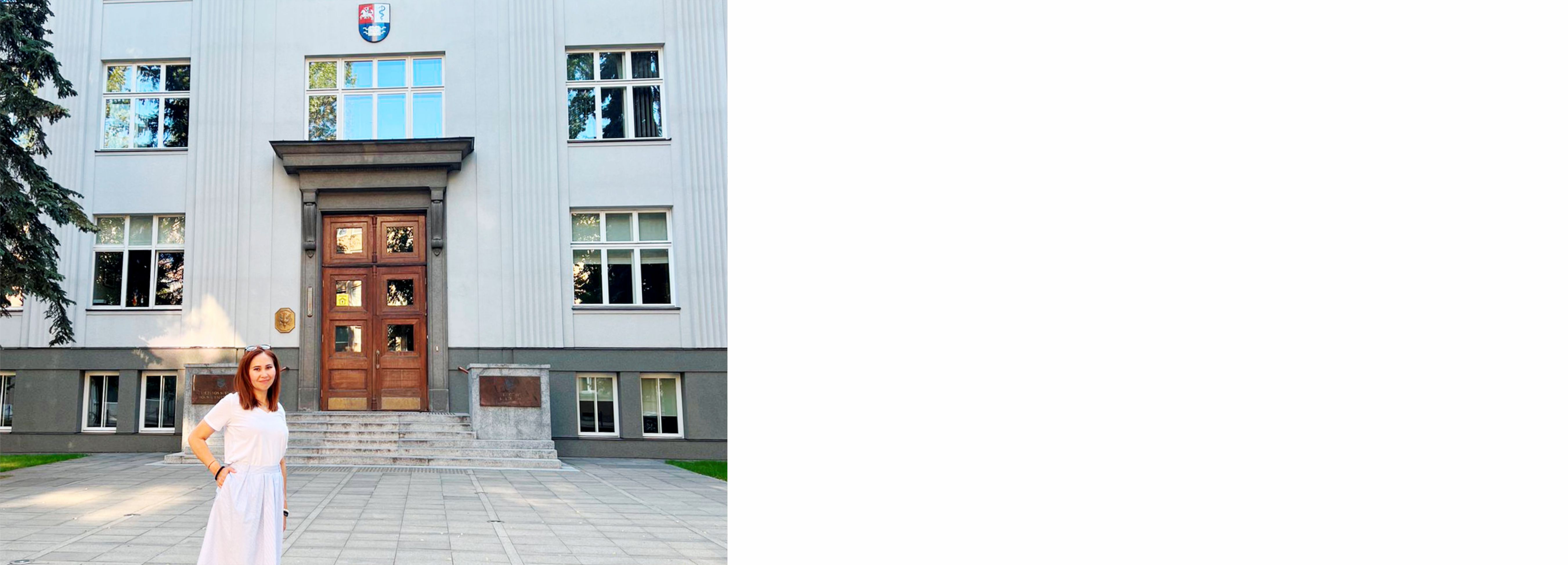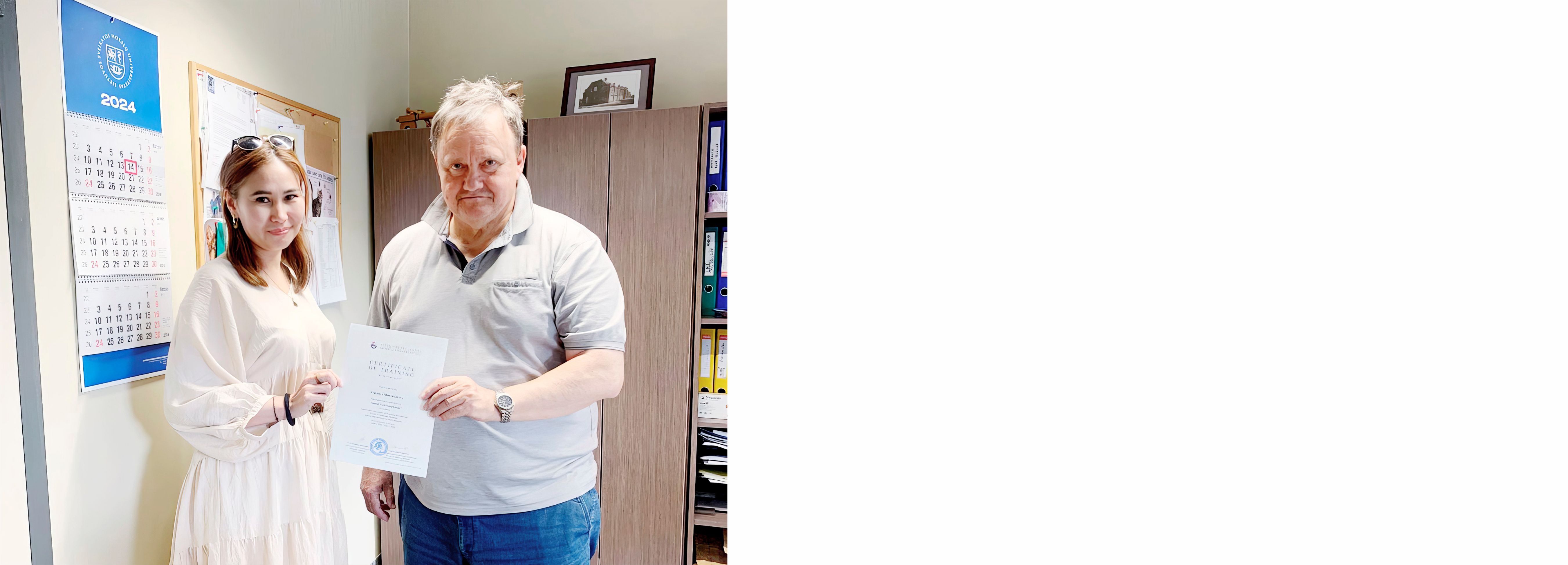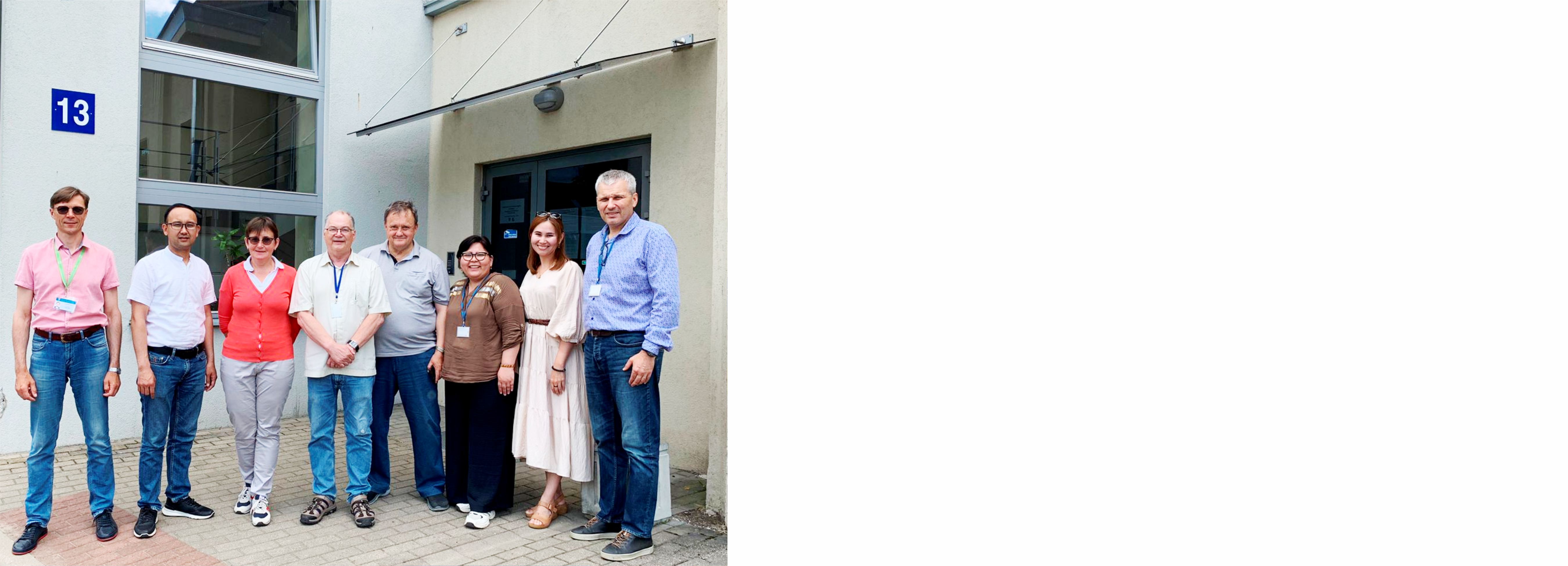Published:
Gulmira Kalikhanovna Murzakaeva, PhD in Veterinary Medicine and Senior Lecturer at the Department of Veterinary Sanitation of the S. Seifullin Kazakh Agro-Technical University, has been consistently striving for professional development, actively participating in various scientific projects and internships since defending her dissertation at A. Baitursynov Kostanay State University.
From April to July 2024, Gulmira completed a scientific internship at the Lithuanian University of Health Sciences in Kaunas. This “500 visiting scholars” scientific internship program provided her with the opportunity not only to deepen her knowledge in animal pathology but also to master advanced research methods, which she is ready to apply in Kazakhstan. In the context of global changes and growing demands for the quality of education and science, such internships become a necessity for professionals aiming to keep up with modern standards.
“I have always dreamed of becoming a scholarship recipient, but I thought it was only available to the most outstanding and experienced. However, deciding to give it a try, I gained unique opportunities to enhance my qualifications and work with advanced methodologies,” Gulmira shares.
Gulmira is confident that the experience gained during the internship will contribute to the development of veterinary science in Kazakhstan. She is not only focused on improving her professional skills but also on introducing international practices and technologies in the field of animal pathology in her country.
“The scientific internship at the Lithuanian University of Health Sciences provided me with the opportunity to work with advanced methods and innovations, which I can now integrate into the educational process,” Gulmira notes.
In her experience, Gulmira has studied modern research methods in animal pathology and conducted a comprehensive analysis of their applicability in Kazakhstan.
She also participated in a project on developing enriched quail feeds based on highly nutritious, easily digestible, and natural plant components.
“My internship was aimed at improving professional skills and mastering the latest approaches to pathology, based on the best international practices. Returning to Kazakhstan, I intend to apply the acquired knowledge and methods in practice, which will benefit both me and the entire community of veterinary specialists in our country. Scientific internships have opened new horizons of international scientific cooperation and innovation for me,” Gulmira emphasizes.
During the internship, Gulmira not only studied advanced methods in pathology but also actively participated in research and the development of new technologies. One significant project was her collaboration with Lithuanian colleagues in creating innovative approaches to diagnosing poultry diseases. Gulmira provides a detailed account of the method they developed together:
“Together with the veterinarian of the ‘Kaišiadorių paukštynas’ poultry farm, Tadas Vervickas, Professor Alius Počkevičius, and resident Gintaras Panavas, we mastered the Johnson-Reid method of broiler dissection, which allows diagnosing coccidiosis before clinical symptoms appear. This method involves dissecting live birds at five-day intervals, for example, on days 15, 20, 25, 30, 35, and at slaughter age (39, 40 days). During the dissection, we assessed the degree of intestinal damage at sites characteristic of certain species of Eimeria, noting hemorrhagic and necrotic areas,” the scholarship recipient shares her experience.
Veterinary medicine in Kazakhstan plays a key role in ensuring animal health, food security, and the development of agriculture. Specialists in this field must possess the most advanced knowledge and methods to effectively address new challenges such as animal diseases, climate change, and globalization. The in-depth knowledge in pathology that Gulmira Murzakaeva gained during her internship will not only improve the quality of veterinary education but also contribute to the development of innovations in animal husbandry and the food industry in Kazakhstan.



